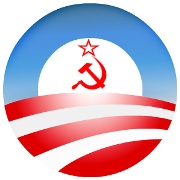Jared Taylor, Special to AR News, November 14, 2008
The presidentialelection of 2008 brings to mind another vote that took place 16 yearsago in South Africa: the referendum in which whites voted to turn powerover to blacks. Though it has long been overshadowed by the 1994general elections that brought the African National Congress (ANC) topower, it was the referendum of March 17, 1992, that ended white rule.
By 1992, President F. W. de Klerk and his National Party governmenthad repealed all the major apartheid laws. The ANC had been unbanned,and Mr. de Klerk had started discussions with Mr. Mandela on a newconstitution that would enfranchise blacks and “share power.”
Andries Treurnicht and his Conservative party led the opposition tothese negotiations, saying the president had no authority to negotiatea new constitution. Mr. de Klerk decided to put the question to thepeople. If he won the referendum, he would push on to a newconstitution; if he lost, he would resign and call a general election.
The referendum asked the following question: “Do you supportcontinuation of the reform process which the State President began onFebruary 2, 1990, and which is aimed at a new constitution throughnegotiation?” (It was on February 2, 1990, that Mr. de Klerk announcedthe unbanning of the ANC and the release of Mr. Mandela from prison.)
The National Party—the traditional party of the Afrikaners—mounted amassive campaign for a “yes” vote, warning that a “no” would mean moreinternational sanctions and black violence. One of its campaign posterswas of an armed member of the Afrikaner Resistance Movement—a militantwhite organization—with the slogan, “You can stop this man! Vote YES.”In other words, the real menace for South Africa was a white man with agun.
The Conservative Party, which campaigned for a “no” vote, warnedthat “power sharing” was just another name for black rule, and thatwhites had the right and the duty to govern themselves.



How did the people of the Great Trek, the Battle of Blood River, andthe Boer War vote? They feared international isolation more than theyfeared black rule; whites voted 68 to 31 percent for “continuation ofthe reform process.” Nor was this a decision forced upon Afrikaners bywhite English-speakers. Though some militant groups boycotted thereferendum, all election analysts agree that a majority of Afrikanersvoted “yes,” and some even believe there was more support amongAfrikaners than British South Africans. Whites therefore had the chanceto keep their country, but gave it away. That vote ensured the ANCvictory of 1994 and everything that has followed.
American whites are not quite as eager as the South Africans were.In the November 4 election, only 43 percent voted for black rule—pardonme, for Barack Obama. Fifty-five percent of whites wanted John McCainto be their president but it was blacks and Hispanics who got thepresident they wanted, not whites. Every year, as the number ofnon-whites increases, whites will have less say about who rules them.